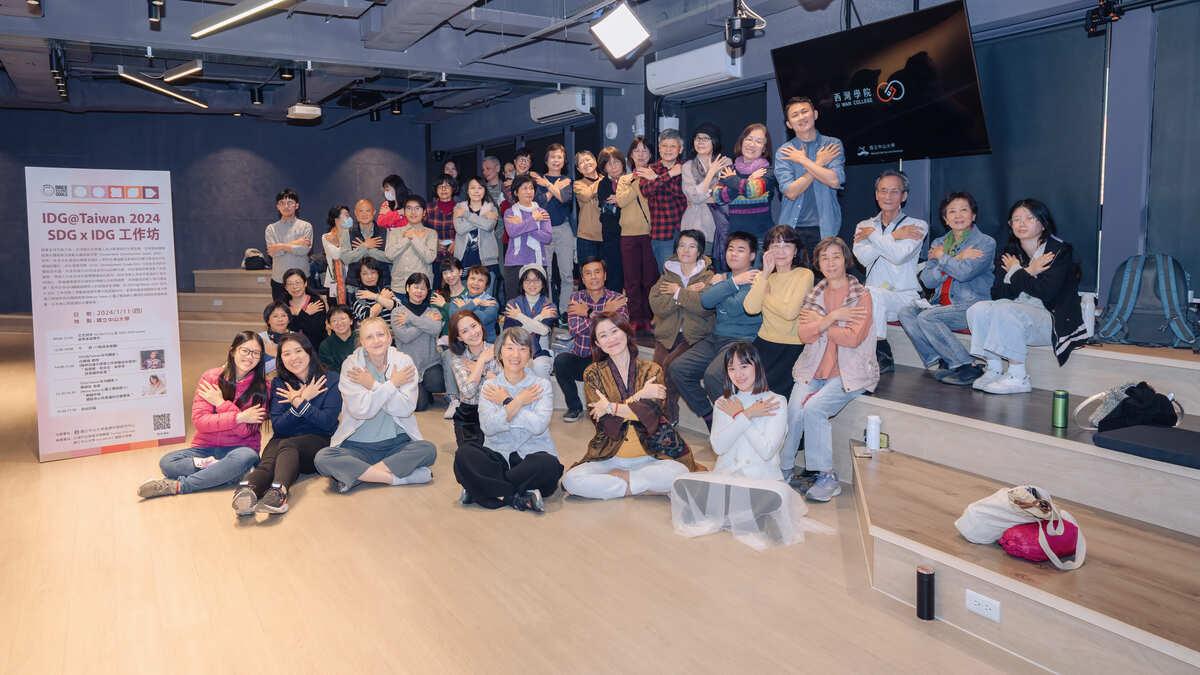
Global air pollution and climate warming have triggered frequent extreme weather events, drawing attention to ecological crises that threaten humanity's future. In response, the United Nations established the "2030 Sustainable Development Goals" (SDGs), which include 17 goals and 169 targets such as urgent climate action, gender equality, reducing inequalities, sustainable cities and communities, responsible consumption and production, quality education, good health and well-being, peace, justice and strong institutions, and global partnerships. Yet, more and more countries recognize that achieving these external goals requires an inward shift in humanity's core values and qualities. Without inner transformation, the SDGs risk becoming slogans or dogma. Thus, the promotion of Inner Development Goals (IDGs) has become a global consensus.
To highlight the close connection between SDGs and IDGs, the Aerosol Science Research Center (ASRC) of National Sun Yat-sen University (NSYSU) hosted the "SDG x IDG" Workshop. Participants explored sustainability issues through three educational board games. The first game, Don't Cry, Airel: Fighting for Clean Air, is a newly designed decision-making game by ASRC. Players assume different societal roles and use functional cards to strategize how to influence air quality outcomes. Through role-playing, participants discovered that they themselves might be inadvertent contributors to air pollution, prompting reflection on daily behaviors and inspiring real-world solutions. Although "air" is not explicitly listed among the 17 SDGs, air quality is intricately linked to all of them.
The second game, Sustainable Home Practitioner, developed by the social enterprise Game Power, was led by its CEO, Tzu-Ming Huang. From the perspective of policymakers, participants confronted trade-offs and actions required to build sustainable communities. The third, the 2030 SDGs Game—developed by Japan's Imacocollabo and introduced by Shu-Juan Chen, General Manager of CBC Bridging Management Consulting—immersed participants in simulated economic, promotional, and consumer activities, envisioning what the world might look like in 2030. Through the simulation, participants recognized how their personal values and behaviors influence the global future, and how to make decisions for collective well-being under limited resources.
Professor Chia C. Wang, Director of NSYSU's ASRC, introduced the concept of IDGs by drawing an analogy with "latent heat." Just as matter undergoes a phase transition where internal molecular forces change before a temperature shift occurs, achieving SDGs requires inner transformations in human values and structures. She emphasized that ecological crises are the collective result of humanity's choices, underscoring the need for deeper inner change to sustain the Earth.
In the afternoon, the workshop featured two IDG keynote sessions. Professor Hsun-Ling Bai, Honorary Retired Professor at National Yang Ming Chiao Tung University's Institute of Environmental Engineering, began with Ken Wilber's four quadrants of self-awareness and consciousness evolution, then expanded to the quadrants of sustainable development. She highlighted how IDG skills such as self-awareness, empathy, compassion, and courage can help achieve sustainability. She also introduced David R. Hawkins' Map of Consciousness, explaining how different levels of consciousness correspond to varying energy states.
Chi-Hsin Chen, founder of Moon Voice, emphasized that recognizing the symbiosis between humans and nature begins with self-awareness. She introduced the knowledge of chakras in Ayurvedic medicine and guided participants through music she composed to experience the vibrations of sound and the heart chakra—a symphony of body, mind, and consciousness.
.jpg)
.jpg)
.jpg)
.jpg)
.jpg)
.jpg)
.jpg)


